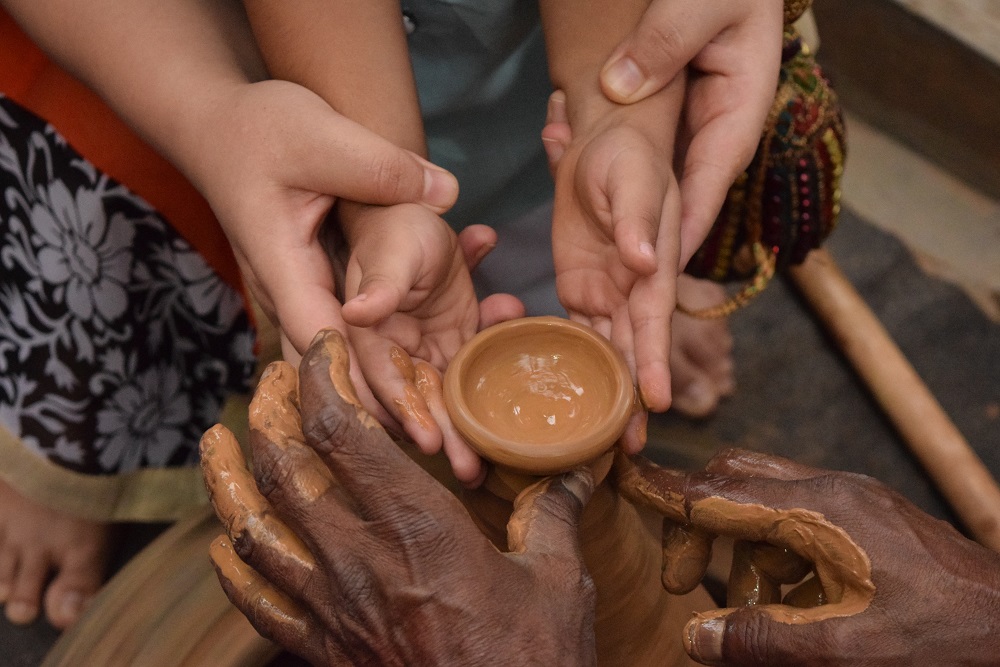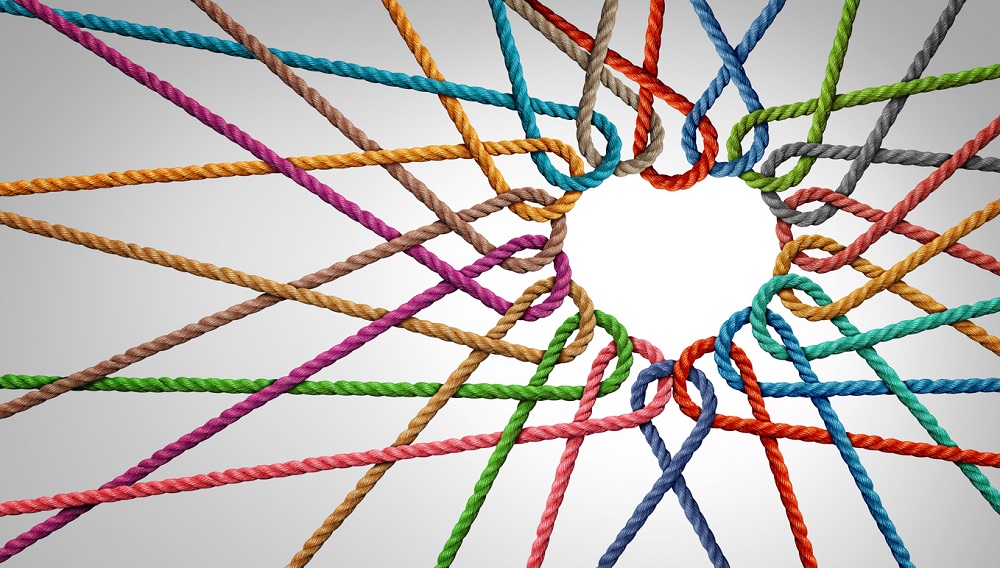‘Ubuntu is essentially about togetherness, and how all of our actions have an impact on others and on society. It is the common thread of the UN’s Global Goals, and the motivation in the mission to end extreme poverty — so that everyone, everywhere, can live equally.’ Global Citizen.
When South Africa finally rejected apartheid, the change was eased and supported by the African philosophy of Ubuntu. As it turns out, the Ubuntu way of thinking gives us a powerful way to combat individualism, the philosophy the West has followed for a long time but which hasn’t served us well.

Umuntu Ngumuntu Ngabantu – I am, because you are
The African philosophy of Ubuntu is rooted in the Nguni people’s concept of being human. It emphasises the significance of community and teaches us that we’re nothing without others, that a person is only a person through others. No wonder so many people see it as an essential counterweight to the culture of individualism so many of us are trapped in.
Ubuntu is neither political nor religious. It’s more about social awareness, a consciousness of others, the fact that each of us holds a responsibility to ourselves as humans, to others – especially the vulnerable – and to the totality of the world around us.
An example of Ubuntu at work
A third of the planet’s food crops are cross- pollinated by bees. If we take the bees out of the equation, we ultimately destroy ourselves. This is why Ubuntu matters.
As humans we are only the co-creators of a balanced biodiversity. Everything we do is interdependent with others, whether those ‘others’ are plants, animals, or our fellow humans. While our human relationships matter, the relationships we have beyond that, with non-humans of every kind, mean we are implicated in and completely intertwined with other lives.
Ubuntu as an antidote to western individualism

As humans we’re intimately connected. Even in an individualistic western culture like ours, we rely on each other, agreeing a set of fundamental human rights that we owe to ourselves and our communities. But while individuality gives us a sense of independence and the freedom to develop our own personality, western individualism lets the ego take over – it can be all about me.
Doing things the Ubuntu way, inspired by indigenous knowledge systems like those found in Africa, we temper our personal egos through our communities; our family, friends, colleagues, local area, wider environment, and the planet as a whole. Because we belong to the world, each of us has a responsibility for that world.
If this kind of thinking feels familiar, it’s because this is the way many of the world’s indigenous people feel, and behave. Like the Gaia hypothesis, Ubuntu gives us a profoundly different way to re-imagine new societies, priorities, and futures. In South Africa, for example, Ubuntu helped the nation find a value system inspired by its ideals, ultimately achieving redress, restorative justice, forgiveness, and healing.
Ubuntu in everyday life
So Ubuntu is a reminder to society about how we should be treating others. But it’s about more than words. As Mother Teresa said, compassion is useless without action or application, and Ubuntu is all about action. We need to actually see people, see our fellow living beings, see the environments that sustain us. Then recognise them, and empathise, and go out and help them.
If you care, show it. Make sure your environment isn’t destroyed. Accept your responsibility for the part you play in the world, in the planet that is the source of your life, other people’s lives, other living beings’ lives, and everything else.
This wonderful BBC video explains Ubuntu perfectly.
The last word…
Looking after each other and everything around us plays a vital role in the success of humanity. We’ll leave the last word to Barack Obama, who said this about Nelson Mandela in 2018:
“There is a word in South Africa — Ubuntu — that describes his greatest gift: his recognition that we are all bound together in ways that can be invisible to the eye; that there is a oneness to humanity; that we achieve ourselves by sharing ourselves with others, and caring for those around us.”
About us
We are a team of highly experienced executive coaches, focused on developing leaders working in high-stakes environments across diverse sectors. We create space for leaders to step back, think clearly, and navigate complexity with confidence and renewed purpose. Our narrative-based approach blends deep listening, incisive questioning and rigorous thinking with a strong commercial focus.
“Our Knowledge Centre is designed to resource leadership practice and development. The articles we share on this site are intended to spark fresh thinking, offer practical tools, and support continuous professional growth.”
Jude Elliman
Founder
Our approach
We work with leaders to build their leadership brand and impact. Our approach includes:
✔ Challenge and support: creating time and space for rigorous thinking and problem-solving
✔ Narrative coaching: defining and refining the stories that shape leaders and organisations
✔ Commercial focus: cutting through complexity for strategies that inspire change and drive results
We help leaders make crucial decisions, align teams for greater effectiveness, and envision new possibilities for the future.
